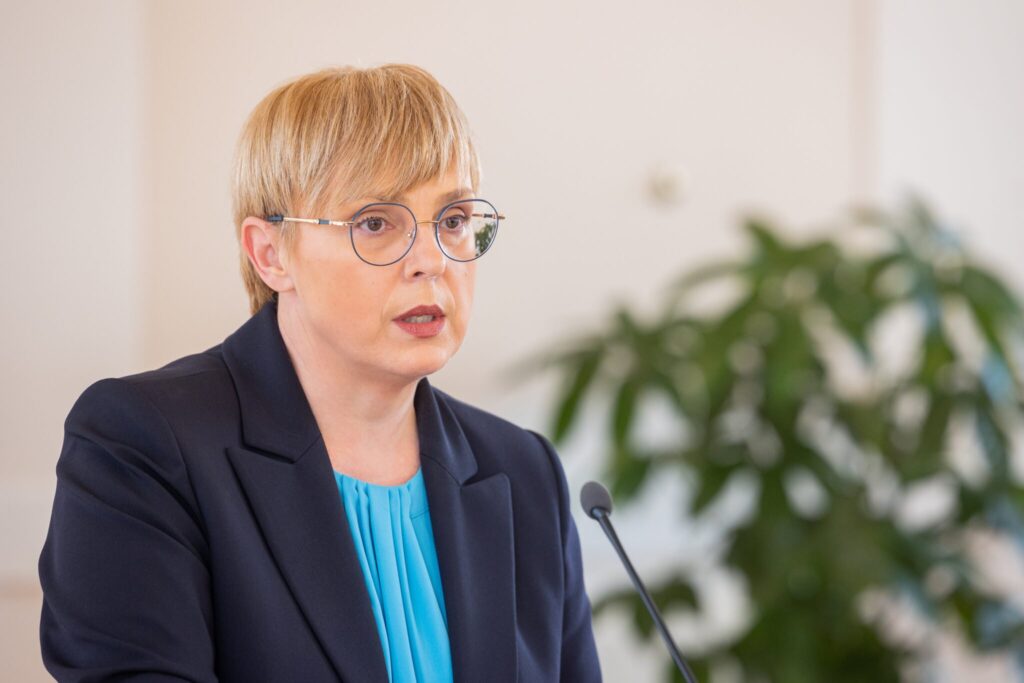Wednesday marked the Europe-Wide Day of Remembrance for the Victims of All Totalitarian and Authoritarian Regimes. Several commemorative events were held in Slovenia to pay tribute to the victims, including a holy mass in the Ljubljana Cathedral and a round table on the path to reconciliation, which was also attended by the former President of the Republic, Borut Pahor. However, the current President of the Republic did not continue the tradition of her predecessors of commemorating the European Day of Remembrance for the Victims of Totalitarian Regimes, according to Radio Ognjišče.
On the occasion of the Day of Remembrance, the European Commission’s Vice-President for Values and Transparency, Věra Jourová, and the European Commissioner for Justice, Didier Reynders, said in a statement that on the 23rd of August, “We reaffirm to the countless victims of totalitarian and authoritarian regimes that they are not forgotten, and renew our commitment to do everything in our power to ensure that such tragedies do not happen again.”
The 23rd of August marks 84 years since the signing of the Ribbentrop-Molotov Pact between Nazi Germany and the Communist Soviet Union. This day was later declared the Europe-Wide Day of Remembrance for the Victims of All Totalitarian and Authoritarian Regimes by a resolution of the European Parliament in 2009, and since 2012, it has also been officially commemorated in Slovenia. In Slovenia, it is the Study Centre for National Reconciliation (Študijski center za narodno spravo – SCNR) that organises the main event on the aforementioned occasion, and they also organised the event held on Wednesday. This year, however, the commemoration happened without the presence of the country’s highest representatives. The President of the Republic, Nataša Pirc Musar, was not present at the event due to her vacation abroad and the schedule she has set a year in advance, as she informed the organiser.
The Director of the Study Centre for National Reconciliation, Dr Tomaž Ivešić, who was also the organiser of the main event on this occasion, told Radio Ognjišče that the President of the Republic of Slovenia, Pirc Musar, had been invited to attend the event, and after quite some time, she replied that she was on holiday abroad and that her schedule was quite full, although it has long been clear that Slovenia has been officially commemorating this day since 2012.
Several other commemorative events also take place across Slovenia on Wednesday. The Metropolitan Archbishop of Ljubljana, Stanislav Zore, held a mass for all victims of totalitarian and authoritarian regimes in the Ljubljana Cathedral, followed by a commemoration and a solemn address by lawyer Matej Avbelj. In the morning, the Institute of Dr Janez Evangelist Krek organised a round table discussion at the Kazina Palace in Ljubljana on what Slovenia has done so far and what challenges still lie ahead on the road to reconciliation, which was attended by historians Mitja Ferenc and Aleš Maver, alongside former President of the Republic Borut Pahor. “Slovenians have two views of the Second World War on Slovenian soil and of the events immediately after it, framed by the victors and the vanquished in the resistance against the occupiers and the fratricidal tragedy of the Slovenian nation at the same time. As a result of the two views, in which each side has its own place of memory, we as a nation have a fractured historical memory of one of the key periods of Slovenia’s past, with all the negative consequences for the present and the future,” the event’s organisers wrote, according to the newspaper Družina, adding that they were organising the event in the hopes of preserving the memory of those lost and building a better future.
Speaking to Radio Ognjišče the day before the event, former President Pahor said that all three totalitarianisms should be seen as a whole, which had severely damaged the European population in the 20th century. Pahor said that very little attention had been paid to this important day in the last ten years, but that he himself, as President of the Republic, had been as active as possible (laying wreaths, attending events, giving speeches). He said that the 23rd of August had been used more as a commemoration of the victims of communism, although that was not the purpose of the day at all. “The purpose of this day is to see the totality of the three totalitarianisms that ravaged one part of Europe in the 20th century. That is why I also welcomed the government’s decision to have a day of commemoration for the victims of communist violence, because in that sense, we could commemorate the 23rd of August together with other European nations as a day of remembrance for the victims of all three totalitarianisms,” he stressed, adding that he believes that the day of commemoration for the victims of communism would be restored.
Figures vary on how many victims the three totalitarian regimes – fascism, Nazism and communism – caused around the world, but there were certainly tens of millions of victims, tens of thousands of whom were also Slovenian. But the current authorities do not want to acknowledge these victims, and have even abolished the Slovenian Day of Remembrance for the Victims of Communist Violence.
Sara Kovač


